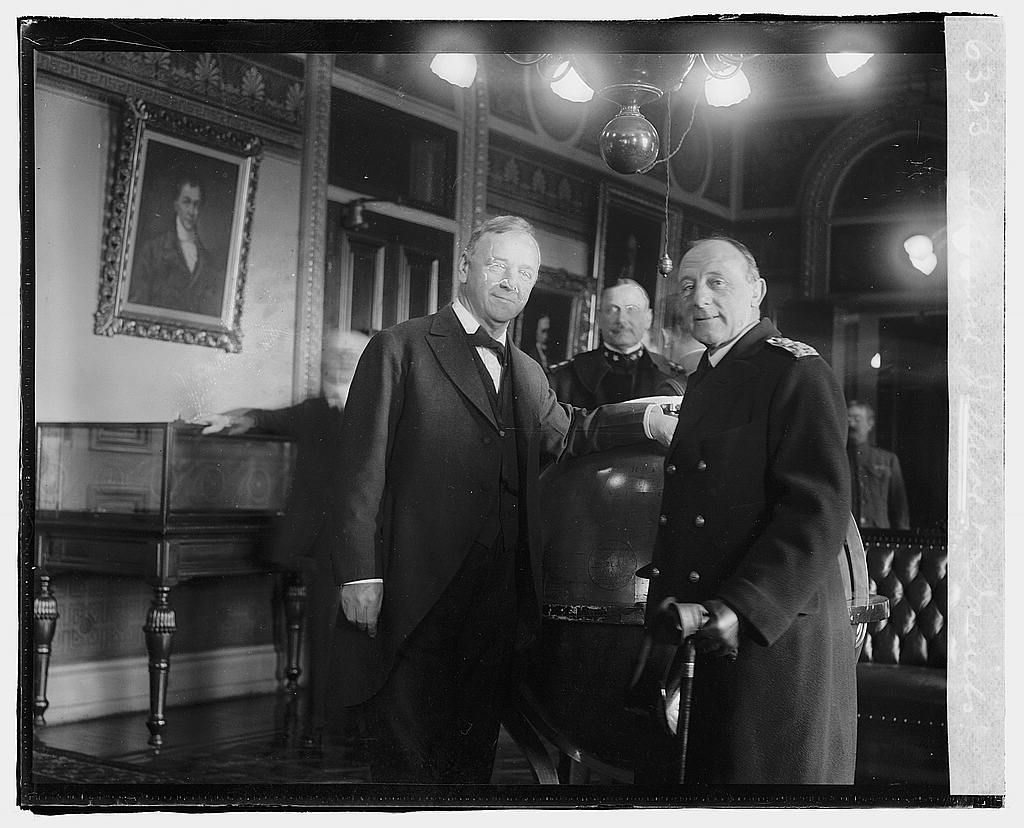It was the first Monday of the New Year, and the New Decade, the date, being the first of a full work week, when the new year really begins, at least for adults.
So how did it start off?
Joseph and Thomas Leiter skating on the basin, Joseph takes a fall. Washington D. C., 1/5/20.
Washington D.C. was apparently having a cold snap, as the Tidal Basin was frozen and children were taking advantage of it for ice skating.
Miss Betty Baker, daughter of the Secty. of War and Miss Annie Kittleson skating on the Tidal Basin, Washington D. C., 1/5/20.
Admiral Jellicoe was still making the rounds.
Admiral Jellicoe photographed in Secty. Daniels office at the Navy Dept. 1/5/20.
The Supreme Court upheld the Volstead Act thereby wiping out booze for good, or so it would seem, right down to the ultra light beer level.
At the same time, things were developing and heating up in Ireland, where separatists Republicans were fighting the British in their effort to form a separate republic. A familiar map was beginning to take place there.
Closer to home the Palmer Raids were still being celebrated and a new effort was underway for a sedition act designed to take on home grown Reds, described by the Casper headline writer as "long haired men and short cropped women". That headline actually did catch a hair style trend in radical women, albeit on that was about to spread. As described by Whitaker Chambers in Witness, radical women of the time bobbed their hair. Soon, that style, perhaps boosted by the daring radicalism, would spread to the female population in general.
By 1924, bobbed hair would be a flapper thing. In 1920, it was a Red thing.
Reds and their opponents were at it tooth and nail elsewhere.
In Poland the Battle of Daugavpils concluded with the Soviets retreating into Latvia and being taken into custody there. That was possible as Poland and Latvia, which had been fighting, had concluded an armistice in the struggle between them and had asked the Poles for help. The anti Red forces were approximately half Pole and half Latvian, and fought successfully under Polish command.
Mustered Polish armor in the form of French tanks at Daugavpils.










